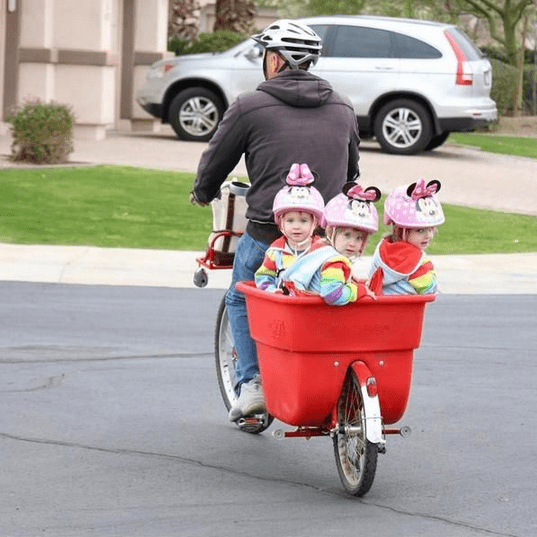Wildfires, floods, and intense storms got you thinking about climate change? Maybe you’re frustrated with increased traffic on our roadways, cars clogging your neighborhood streets, or ugly parking garages popping up in your towns?
If you want to reduce your contribution to climate change and preserve the safety, walkability, and vibrancy of your town, then the biggest impact you can make is by driving less.
In the United States, transportation is the largest contributor to greenhouse gas emissions, gasses that trap heat in our atmosphere and cause climate change. More than half of transportation in the U.S. is completed by personal vehicle. Nearly every household in the U.S. has at least one personal vehicle and over a third have at least 2 vehicles. Despite the rising costs of car ownership each year, more people are buying cars, and buying bigger cars, with the Ford F-series being the most popular in 2021 in America .
More than half of the car trips we make each day are less than 3 miles.
Why?
Because we can. Because our cars are literally at our front doors. Driving less and owning fewer cars seems incompatible with an American culture that emphasizes individual freedoms, efficiency and speed, and a go-it-alone mentality. We know when towns improve pedestrian and cycling infrastructure and invest in public transit, people drive less. However, life without access to a car can be inconvenient and impossible for some people, especially if you are isolated (physically or emotionally) without a supportive community or have children to safely and frequently tote around.
Living in a one-car household in Carrboro, NC
We have been a one-car family since moving to North Carolina in 2010. It began as a necessity to save money living on one-income. It continued thanks to our proximity to town amenities and as a way to pollute less, consume less, and bike/walk more. Then along came two children.
With one car, we combine trips, take fewer short trips, and schedule fewer activities simultaneously. One of us has a one-hour commute twice a week. As the kids have grown so have their transportation needs. To get to sports practices, school events, or social activities that are not feasible to bike or walk, we ask for rides or carpool, borrow cars, and on occasion use public transport or taxis. The logistics are hard, asking for help is hard, and saying no to things we really want to do is hard.
After more than 13 years, we are at the point where we are struggling to make it work. We want more solutions that don’t involve buying a car.
How Carrboro could help residents reduce their car usage
One solution that could give people more options is access to car-share. Many cities and university towns have Zipcar, a paid membership-based hourly or daily car share option that is more flexible and accessible than conventional daily car rentals. According to Zipcar, availability of a Zipcar is based on demand, though it’s unclear how they measure demand in a particular town or geographic area. If this type of car share options appeals to you, tell Zipcar! (direct message @Zipcar on Twitter, they will log your location)
There are also peer-to-peer car share services like Turo and Getaround. These options allow you to rent a vehicle from an owner for hourly or daily use. Turo seems geared towards people wanting to try out a high-end vehicle for a day ($$$) and Getaround appears to have just one vehicle registered in Durham, making neither of these services good options for families in our area.
While services like Zipcar or Turo might make sense depending on the situation, another option I would love to see emerge is community car share, a hyper-local but organized system of car sharing that is based on cooperative principles and shared trust between members. If risk is a concern, rest assured that according to most insurance companies, if you borrow a vehicle or lend yours to someone else, your car insurance or theirs covers costs in the event of an accident. If this option appeals to you, would you lend your car out to someone? If yes, what would be criteria for participation as a car-lender or a car-user? With more collective energy and ideas, I believe something like this could work.
Creating a network of one-car households
We want to connect and amplify one-car households in Chapel Hill and Carrboro. If your family lives a car-free or car-light life, or wants to, tell us about it! Do you know of places where either paid or community car-share is in place? Please tell us about them, so we can reach out and learn more (and share back!) Email [email protected] and we’ll connect you with Krissy.
Our changing world is telling us that we can no longer deny our impact on this earth. The time to end our complete reliance on the personal vehicle is now. With greater visibility, support and engagement from the community and town governments, a car-free or car-light life could be more within our reach.

